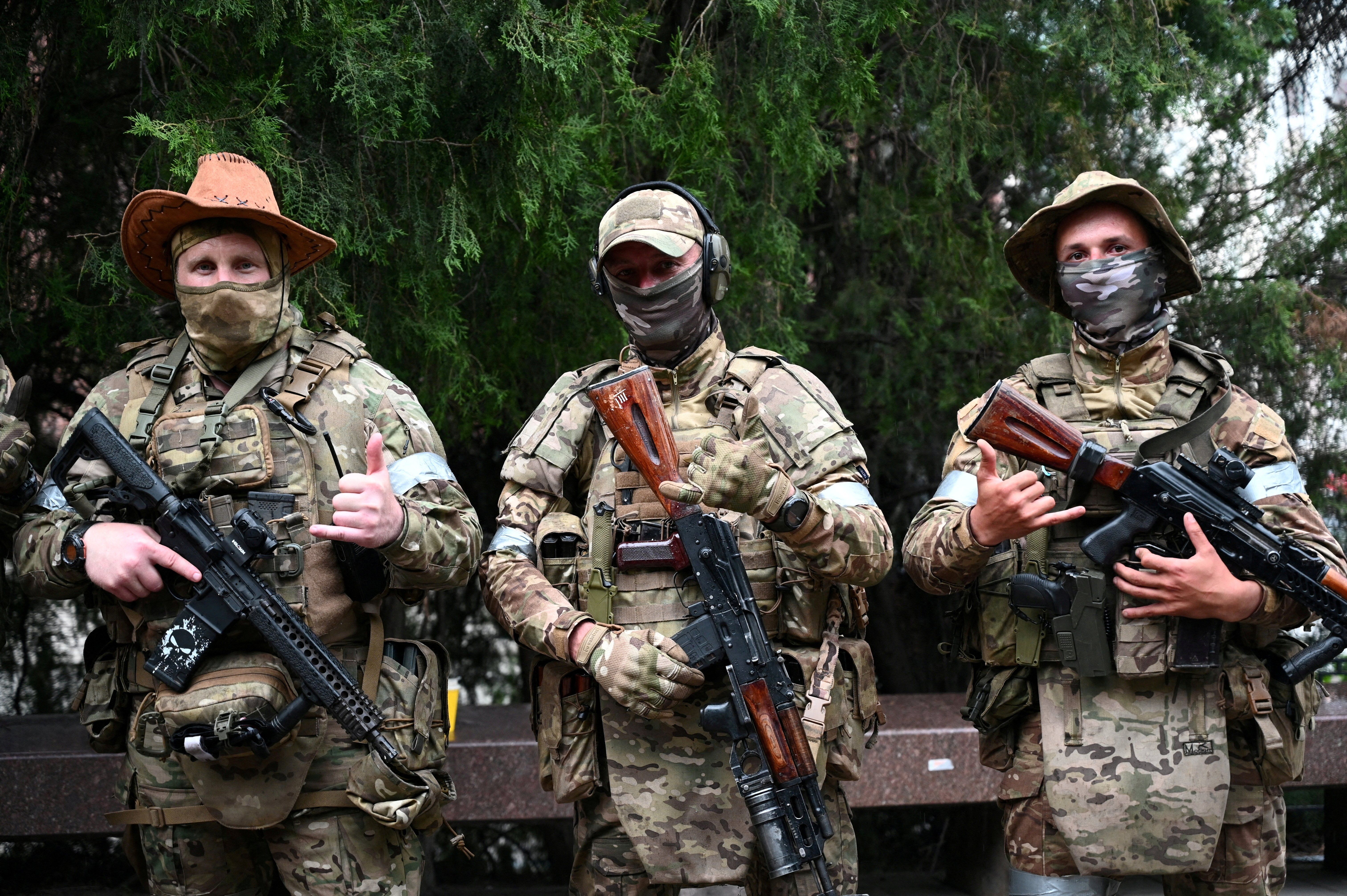Wagner troops posing for a picture during last month's mutiny in the city of Rostov-on-Don.
The Wagner Group, the private army financed by the now infamous entrepreneur/mutineer Yevgeny Prigozhin, has become one of the most talked about players in Russia’s war on Ukraine. But Wagner isn’t what it once was … in a couple of important ways.
Months of grinding warfare have left the group a shadow of its former self. A senior Wagner commander has estimated the group’s casualty rate over the course of the war at nearly 80%. From a peak of 78,000 soldiers, 49,000 of whom were recruited from Russian prisons, about 40,000 have been wounded and 22,000 are dead.
Some of the wounded have returned to duty, leaving Wagner with about 25,000 troops, according to the Wagner commander who also says that about 10,000 have followed Prigozhin into exile in Belarus. The rest, he claims, are in barracks in Ukraine or convalescing in Russia. (These numbers can’t be independently verified, but a group commander speaking to Wagner-friendly media has little reason to exaggerate its current weakness.)
Wagner, therefore, now plays virtually no role in Ukraine.
But even as a greatly reduced force, Wagner is a presence to watch in Belarus. The country’s president, Alexander Lukashenko, can’t be too comfortable with 10,000 heavily armed, battle-tested men – many of whom list Russian prisons as their most recent address – camping and training on his territory, particularly since Wagner troops don’t take orders from him or his commanders.
In short, in its current form, Wagner isn’t strong enough to threaten Ukraine or to start trouble with neighboring NATO member Poland, despite some recent bravado. But Putin has long wanted to bring Belarus more directly under Kremlin control, and Wagner is more than strong enough to one day increase the leverage he holds over Lukashenko – if Putin can finally push Prigozhin off the stage and bring Wagner directly under Russian command.
That idea might become more appealing over time as the war grinds on and as Putin needs more soldiers – and as Lukashenko continues to resist the use of Belarusian fighters in Ukraine.
But Putin has to worry about Wagner forces too. While the group continues to serve Russian interests in Africa and the Middle East, these are the same troops who took part in a mutiny that brought a private army within 125 miles of Moscow just a few weeks ago.
The bottom line: Prigozhin has created a monster that may well be making trouble long after its leader is gone.
